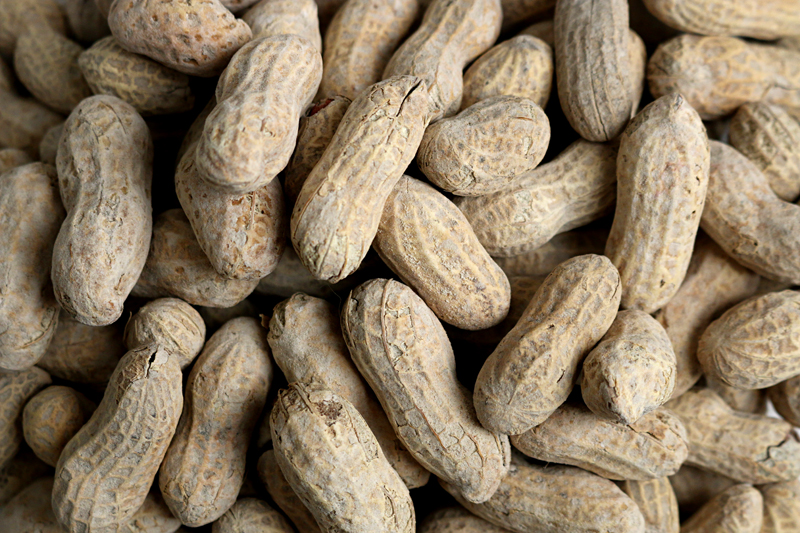K yson and Sara Dana claimed that they were forced to leave the airplane operated by Allegiant Air on the afternoon of Monday, May 2, 2016 prior to a flight out of Provo because the mother alerted a member of the flight crew upon boarding the aircraft that their son Theo — who is two years old — is allergic to peanuts.
Peanut Allergy of Son Results in Family Leaving the Airplane Prior to Flight
The family was on their way home to Oakland when the flight attendant supposedly immediately told the couple that she did not recommend that they fly as passengers aboard the airplane.
Equipped with an epinephrine pen — also known as an epi pen, which is used to help those people who suffer from severe allergies — and sanitation wipes to sanitize their seats against trace amounts of nuts and legumes before settling in for the flight to Oakland. A different member of the flight crew reportedly requested to passengers seated within the vicinity of the family to avoid eating peanuts; and everyone who was asked consented to the request with no resistance or argument.
Shortly after the situation seemed to be resolved, a third member of the flight crew approached the family — claiming to have communicated with the pilot and consulted with a medical professional from a third party organization, resulting in the decision to have the family removed from the airplane because it would not be safe to allow them to fly as passengers for the flight; and the family ultimately missed its flight home.
According to this article written by Lauren Steinbrecher for KSTU-TV FOX 13 News in Salt Lake City, “Theo had just gone into anaphylactic shock over the weekend before their flight after accidentally ingesting an almond.”
Response From Allegiant Air — and The Debate Ensues
Part of the official response sent to the family from Allegiant Air included the following statement:
“On behalf of the entire Allegiant team, please allow me to offer my sincere apology for the inconveniences this incident has caused for you and your family. We regret that you were denied boarding due to any misunderstanding regarding the severity of your child’s peanut allergy. I realize that medical issues can be highly challenging. We just wanted to make sure you arrived home safely.”
This article — which I wrote back on Thursday, August 21, 2014 — covered nut allergies from both sides of the issue that have been in the news; and this latest report pertaining to the experience of the Dana family only adds to the growing number of stories and opinions.
The debate rages on as to whether or not airlines and their passengers should go out of their way to accommodate those who are unfortunate enough to suffer from such allergies — or whether or not people who are severely affected should avoid traveling altogether and simply stay home; and even with the apology, the Dana family would like to see changes in policy pertaining to how those with allergies are treated aboard airplanes on flights…
…but what is the answer? Set up buffer zones aboard airplanes for passengers with severe allergies? Permanently ban the serving of food items which aggravate allergies such as peanuts? Not allow people with severe food allergies to board an airplane for a flight? Operate special flights to cater to people with severe allergies?
Here is a comprehensive list of the peanut allergy policies of 18 different airlines — all of which are based in the United States and Canada that offer commercial passenger service — as a supplemental follow-up to this article pertaining to the continuous debate of whether or not the allergies of passengers should determine what food is served or permitted aboard an airplane.
Summary
A generous worker at Provo Municipal Airport secured them a new flight at no cost with a different airline to them and personally drove them to the Salt Lake City International Airport to safely fly home, according to the aforementioned article from KSTU-TV FOX 13 News in Salt Lake City.
Meanwhile, space is limited and at a premium aboard what some people call a long metal tube which hurls through the sky. For someone with a severe allergy to a food product such as peanuts, avoiding consumption is not necessarily enough.
According to the Mayo Clinic, an allergic reaction may occur if you inhale dust or aerosols containing peanuts, such as that of peanut flour. Symptoms of the allergic reaction may include discomfort, such as swelling of the skin, runny nose, itching, shortness of breath or a tightening of the throat — or anaphylaxis could be a symptom which can cause a reaction that can threaten your life if your allergy to peanuts is severe enough.
The good news is that a patch for people who suffer from allergies associated with peanuts has reportedly been effective in extensive tests recently conducted throughout North America and Europe, which could potentially resolve the peanut allergy issue aboard airplanes in the future.
Severe allergies from which people suffer in general should not be taken lightly. In fact, severe reactions to peanut allergies can be fatal — and I do not blame flight attendants for not wanting to take a chance at serving peanuts aboard a flight if there is a chance of the potential death of at least one passenger known to suffer from severe reactions to peanuts as a result…
…but the real question is whose rights have a priority: the allergy sufferer; or those who are seated nearby the allergy sufferer? Is there a reasonable compromise which can be reached once and for all?
Photograph ©2015 by Brian Cohen.

